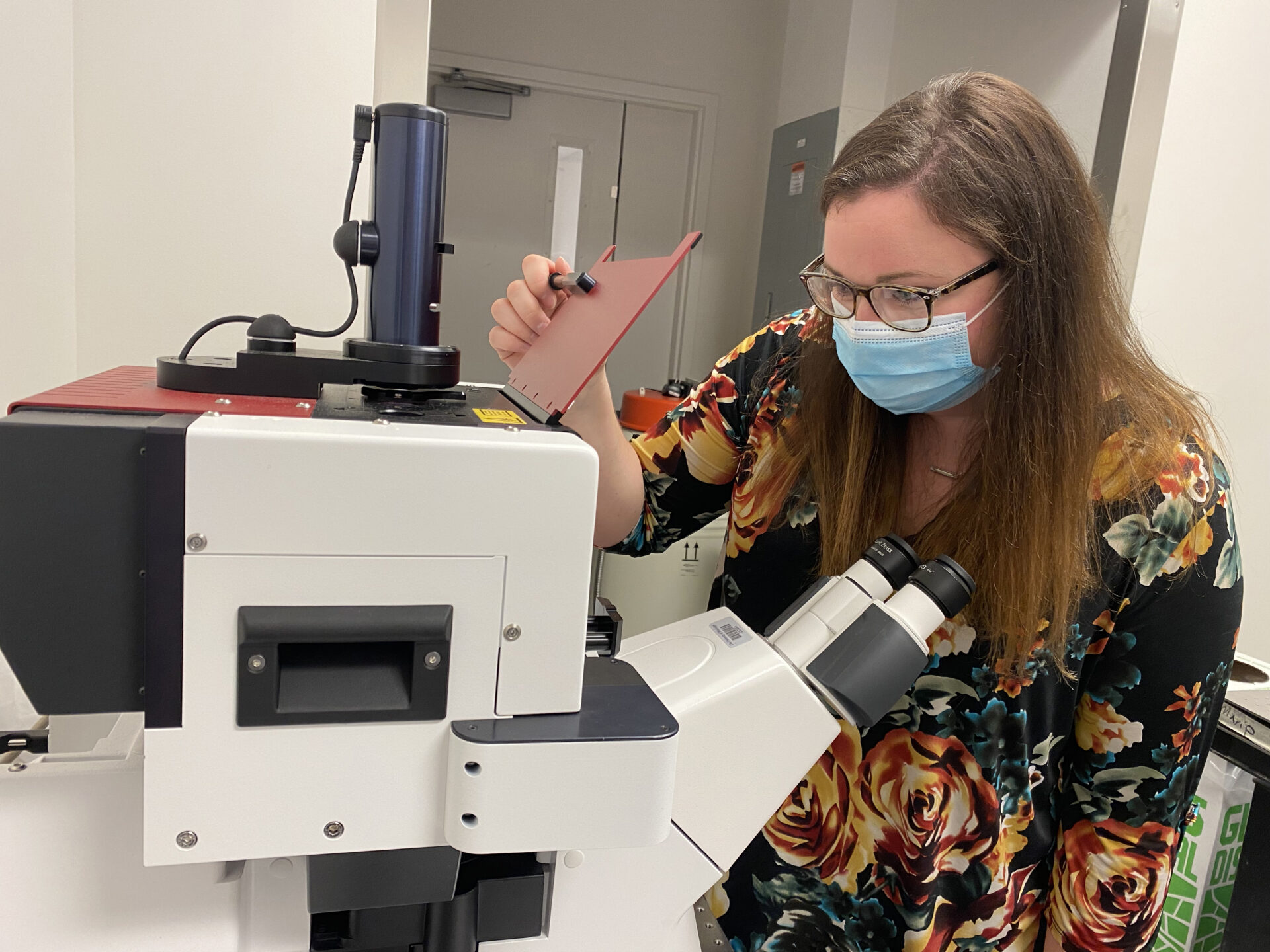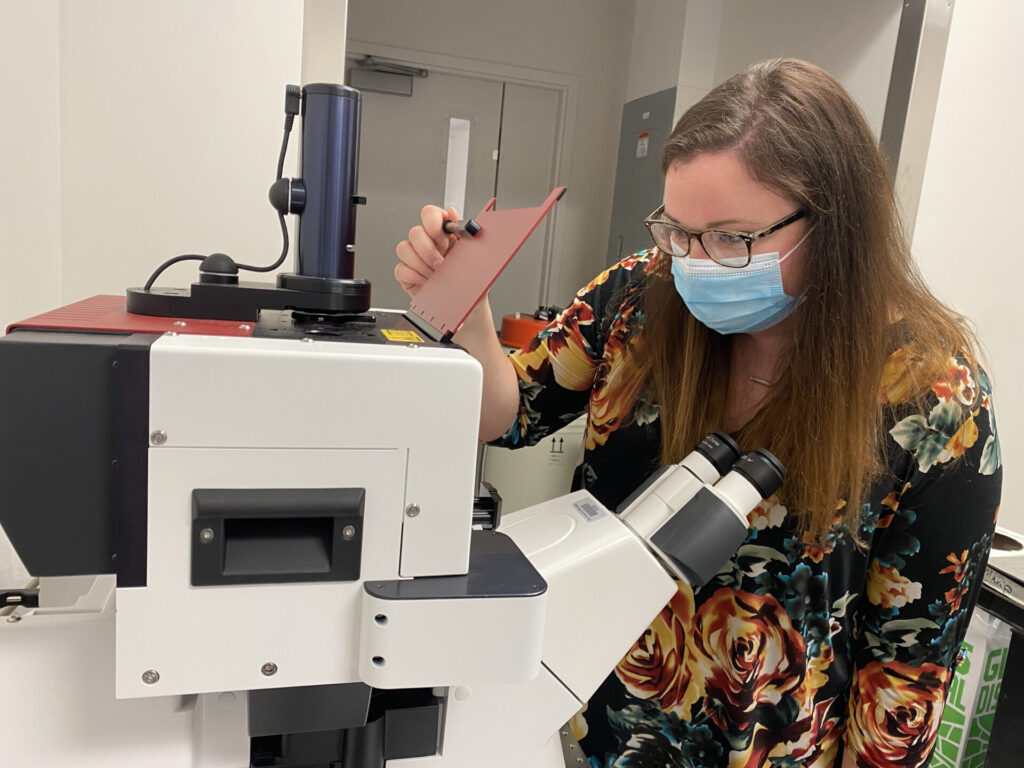Featured
UM Professor Using Grant to Study Molecular Mechanisms That Sustain Life

By Lou Tyson
University of Mississippi

Nikki Reinemann, assistant professor of biomedical engineering at the University of Mississippi, wants to understand the molecular mechanisms that sustain life. The National Institutes of Health has granted her almost $1.5 million so she can devote the majority of her research time to this pioneering field.
Reinemann received the Maximizing Investigators’ Research Award, or MIRA, from the NIH National Institute of General Medical Sciences. This institute supports basic research to increase understanding of biological processes and lays the foundation for advances in disease diagnosis, treatment and prevention.
This is the first time an Ole Miss faculty member has received a MIRA grant, or R35, from the NIH. And it’s only the second MIRA award granted to a Mississippi researcher.
“I am grateful for receiving this award from the NIH,” Reinemann said. “It’s such an honor, and it’ll allow me to focus my research in the exciting field of molecular biomechanics.”
Dwight Waddell, chair of the Department of Biomedical Engineering, concurs.
“Dr. Reinemann brings her enthusiasm and intellect to this challenging area,” he said. “And, she serves as a wonderful mentor for up-and-coming researchers in our undergraduate program.”
Investigating molecular dynamics
In graduate school, Reinemann researched how single motor proteins work.
Now, she is trying to understand how they work and communicate in groups. It is becoming increasingly recognized that when multiple proteins work together, their team dynamics may not necessarily be the sum of their individual properties.
“With a building, you’ll always get the same result if you use the same blueprint, nails, beams and other materials,” Reinemann explained. “With the human body, emergent mechanics are at play because the ‘nails’ and ‘beams’ have a dynamic nature – allowing it to adapt in order to stay alive.
“This originates at the molecular level and works its way up in scale to drive actions such as muscles contracting or cells dividing.”
For her NIH-funded research, she’ll develop and optimize experimental models of protein structural hierarchies, specifically with cytoskeletal proteins. Cytoskeletal proteins not only provide support, strength and rigidity to a cell, but also allow the cell to move and divide to stay alive.
She wants to measure the impact of changing parameters within the structure – the number, concentration or mix of proteins, for example. She can then study these protein building blocks piece by piece to understand the origin of these emergent mechanics.
This research could be a foundation for developing tools to combat cytoskeletal diseases such as cancer and heart disease.
For this work, she will use a highly sensitive instrument known as an optical trap. It incorporates a microscope and laser beam that can manipulate microscopic objects, much like tweezers, and measure movements and forces at a nano level.
The university is one of the very few institutions in the region to have this specialized instrument.
Maximizing Investigators’ Research Award
This MIRA differs from many other awards: it supports the researcher and not a specific piece of research. That means recipients have the flexibility to adjust their research direction as they learn more, and are not constrained to a goal specified in the proposal.
The award focus is on early career investigators – providing funding to encourage successful research careers and giving them scope to pursue research distinct from their mentors.
With the stability of multi-year funding, MIRA researchers can tackle ambitious projects, instead of spending time with grant applications. And it also lets them devote more time and energy to mentoring young academics.
Reinemann’s award for $1,491,222 will allow her to set up a support team with postdoctoral, graduate and undergraduate students.
“I really appreciate how this award promotes academic research at all levels,” she said. “I hope this will attract high-quality students to the engineering program.”
A stellar start
Reinemann joined the biomedical engineering faculty in 2018, and she’s been making strides ever since.
In 2021, she received a three-year grant from the American Heart Association to research the causes behind heart disease.
In 2022, she was given a UM Diversity Innovator Individual Award, which recognizes faculty who demonstrate a commitment to the advancement of diversity, equity and inclusion.
And, starting in 2023, the National Science Foundation is funding her Research Experiences for Undergraduates program in nanoengineering.
This MIRA is supported by the National Institute of General Medical Sciences of the National Institutes of Health under award no. R35GM147050.
The content is solely the responsibility of the authors and does not necessarily represent the official views of the National Institutes of Health.




















































